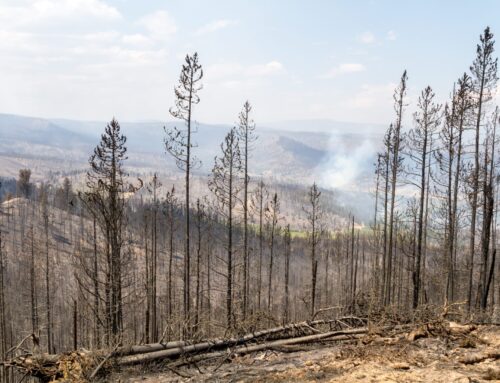President Joe Biden has defended the tax increases he’s proposed to pay for his Build Back Better plan on the grounds that they’ll level the playing field between the rich and the rest of us.
“It’s fiscally responsible, because our investments are paid for that by making sure that corporations and the wealthy Americans pay their fair share,” said the president in a White House speech Thursday.
That rhetoric is in friction with some of the details of the $3.5 billion Build Back Better bill currently working its way through the House. It would alter the tax code to provide new subsidies to a biofuel industry that’s already received $12 billion in government support since 2016.
The bill would create a new “sustainable aviation fuel tax credit” program, which would provide a minimum $1.25 credit to fuel blenders for every gallon of biofuel they include in their fuel mixes intended for use in aviation.
To qualify for the tax credit, these fuel mixtures would have to be produced in the U.S. and produce half as much life cycle greenhouse gas compared to traditional petroleum-based jet fuel. Fuels that produce even less greenhouse gas could qualify for as much as $1.75 in tax credits per gallon.
The program is closely modeled on the federal government’s existing biodiesel tax credit program, which provides fuel blenders with a $1 tax credit for every gallon of biodiesel they include in their fuel mixtures. That program costs taxpayers about $3 billion a year.
How much a biofuel tax credit just for the aviation industry will cost is anyone’s guess.
In May, Congress’ Joint Committee on Taxation said a $2 per gallon sustainable aviation fuel credit included in Senate Democrats’ Clean Energy for America Act would cost only about $300 million over ten years. The White House budget proposal for fiscal year 2022, however, estimated a $1.75 per gallon tax credit would cost $6.6 billion over ten years.
The credit in the House’s Build Back Better bill is estimated to cost $600 million, says Sheila Karpf with Taxpayers for Common Sense. But, she says, “the cost could increase significantly.”
A lot depends on how much biofuel airlines end up using. Currently, they use very little. Earlier in September, Airlines for America, a trade association representing major airlines, set a goal for its members to use 3 billion gallons of sustainable aviation fuel a year by 2030.
Which fuels actually qualify for the subsidy also matters a lot. Biofuels made from palm oil—which produce less greenhouse gas when used but also require leveling rainforests to make—aren’t eligible for the tax credit in the House’s Build Back Better bill.
The House bill’s method for calculating a fuel’s carbon emissions would also likely exclude ethanol and soybean-based biofuels. Reuters reports that some representatives are trying to amend the bill to let the Biden administration decide how to calculate carbon emissions, likely so that more fuels make the cut.
Prior to Biden’s endorsement of subsidies for sustainable aviation fuel, airlines themselves were split on using more biofuels. United has been trying to increase its usage since 2019. American Airlines CEO Doug Parker has argued that his company has done more for the environment by flying a fleet of newer, more fuel-efficient planes.
Forbes contributor Gary Leff argues that the one way to lessen the carbon emissions of the airline industry is to keep ticket prices low. That helps keep individual flights full, lowering the per-passenger emissions of each flight. It also makes air travel more competitive against carbon-spewing cars.
If more biofuel use increases airlines’ operating costs, and thus ticket prices, that could have a negative impact on carbon emissions and the environment, even if the fuel itself lets off less greenhouse gas.
Environmental impacts aside, proposals for an aviation biofuels subsidy would still end up giving a lot of taxpayer support to well-heeled corporations.
“The industry does not need any more subsidies. We’ve already subsidized biofuels for four decades,” says Karpf. “The industry is already very mature. It doesn’t need more government support.”











Get Social